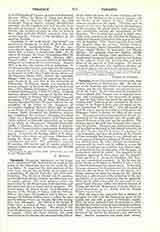

Tarapacà, VICARIATE APOSTOLIC of (De Tarapacà), situated in Chile, bounded on the north by the priest George as his legate to Hadrian I with a letter canon of the Camarones and on the south by the Loa River. It comprises the civil province of the same name, has an area of 19,305 square miles and a population of 106,215 Catholics and 3821 non Catholics. The diocese is divided into 11 parishes, and has 63 churches and chapels, and 30 secular and 14 regular priests. The male religious orders are represented by the Franciscans, Redemtorists, and Salesians; they have 4 houses and 24 members. The female orders are Sisters of the Good Shepherd Angers, of St. Joseph of Cluny, and the Salesian Sisters; they have 50 members and 5 houses. In Iquique the Salesian Fathers have a college for boys and the Salesian Sisters one for girls, the latter having more than 200 pupils. The Sisters of St. Joseph of Cluny have a school in Pica, and a hospital and asylum for children in Iquique. The Sisters of the Good Shepherd have a house of correction for women in Iquique. There are many societies and pious associations in the diocese, the principal being that of Orden Social for men, the Centro Cristiano and the Society of St. Philomena for women in Iquique, and the Society of St. Andrew in Pica. There are 5 primary schools with 481 pupils. The State pays an annuity to the vicar Apostolic, and to the employees of the vicarage, the parish priests, the curates, and also contributes towards the construction of the churches. The vicariate was erected in 1882, when Chile took possession of the Province of Tarapacà, which had formerly belonged to Peru and to the Diocese of Arequipa. Five vicars apostolic have ruled the vicariate since its erection: Camilo Ortàzar; Plàcido Labarca; Daniel Fuenzalida; Guillermo Juan Càrter, titular Bishopof Anthedon; and Martín Rüker. The principal cities are: Iquique (45,000 inhabitants) and Pisaqua (5105 inhabitants). The population is composed mainly of miners and workers in the saltpeter beds, who are homeless and little given to the practice of their religion. To provide a remedy and alleviate this condition, missions are preached almost every year in the saltpeter works.
Carlos S. Cotapos

